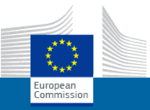Condemnations, censures, and corrections animated the academic debates about several speculative problems between the end of the 13th and the first decades of the 14th century. The bases for these intricate antagonisms were not only philosophical or theological divergences, but also prejudices and political struggles. Then, a multifaceted process, characterized by a dialectic tension between a desired freedom of teaching and monitoring processes, influenced teaching and learning activities in the late medieval schools and universities. Accordingly, a significant number of commentaries, handbooks, and treatises for the schools was edited in order to revise and to use condemned theses and doctrines for teaching activities.
William of Peter of Godin (c.1260-1336), a “leading figure within the Dominican Order”, was one of the main exponents in this debate. Besides his status as an appreciated theologian at the University of Paris, William was Master of the Sacred Palace and Papal legate. Therefore, his works should be seen as an attempt to amalgamate speculative contents, political pressures, and religious convictions. In particular, his Commentary on the Sentences, the Lectura thomasina, written around 1300, is a paradigmatic example of rectification and adaptation of philosophical and theological theses in relation to school curricula programs.

This project has received funding from the European Union’s Horizon 2020 research and innovation programme under the Marie Sklodowska-Curie grant agreement No 657033 (TEACHPOL- Freedom of Teaching and Political Control: The Case of Thomas Aquinas’ Assimilation in William of Peter Godin’s Lectura Thomasina)